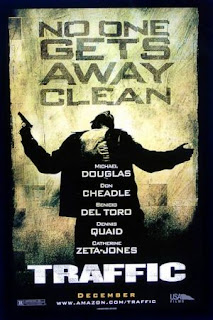
Polish master Krzysztof Kieslowski’s greatest achievement, undoubtedly his magnum opus (along with
Decalogue), the
Three Colors Trilogy is an astounding episodic journey where each film is based on the theme propounded by the corresponding colour in the French national flag, viz. liberty, equality and fraternity.
Blue (
Bleu) is a deeply philosophical exploration that portrays the protagonist’s attempt at liberty from her deceased legendary husband’s inescapable presence;
White (
Blanc) (on a personal note, this being my favourite) is a mordant black comedy and a neo-noir where a divorced and humiliated husband attempts to get even with his former wife;
Red (
Rouge), often considered the best of the venerable trio, follows the unlikely friendship between a young girl and a retired judge, and their heart-rendering commonality. Evocatively composed, hauntingly photographed, exceedingly well enacted - especially by the three female actors, and passionately directed, the trilogy is a marvelous demonstration of a visionary director at the pinnacle of his artistic and philosophical prowess, and will forever be glowingly referred to as one of cinema’s most profound achievements.

Director: Krzysztof Kieslowski
Genre: Drama/Psychological Drama/Black Comedy/Social Satire/Romantic Drama
Language: French/Polish
Country: Poland/France


































